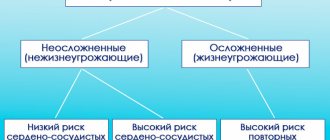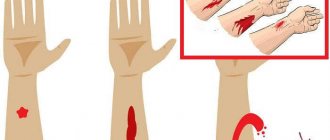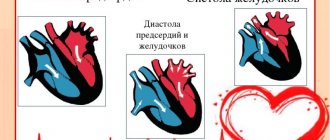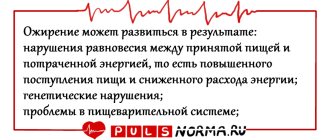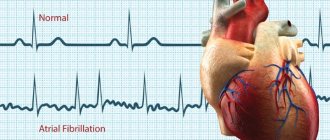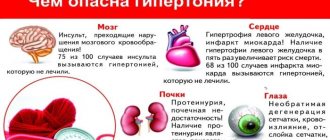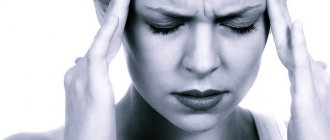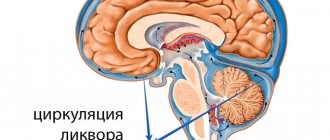Blood pressure is the force with which blood presses on the vascular walls. The heart first fills with blood, then pushes it out through the vessels. This process ensures the supply of vital fluid to all organs. Pressure indicators are indicated by a fraction. The first number is systolic pressure, showing the rate of myocardial function, the second is diastolic pressure, showing vascular tone. The normal value is 120/80. A strong increase in indicators indicates hypertension, and a decrease indicates hypotension. Blood pressure of 90 over 60 is often found in young people who do not have any health problems.
If at this level a person feels well, then the condition is called physiological hypotension. But when a decrease to these levels provokes headaches, dizziness and weakness, you need to see a doctor - these could be pathological conditions, for example, disorders of the adrenal glands or thyroid gland.
What is hypotension
The standard pressure is 120/80 mmHg. Art. A deviation upward or downward indicates the development of the disease and deterioration in well-being. Moreover, it can change throughout the day, but when the minimum limit of 100/60 is reached, we can talk about hypotension. In this case, treatment is required. With low blood pressure, you may feel unwell and lose strength. Elderly women are most often affected by hypotension. External signs:
- pale skin;
- thinness.
We must not forget that sometimes there are people for whom hypotension is considered a stable condition. They feel comfortable and do not experience discomfort.
For whom are blood pressure readings of 90 to 60 normal?
Blood pressure in the indicated values can be considered normal only for three groups of the population. These are children under 7 years of age, pregnant women and people hereditarily predisposed to hypotension.
For everyone else, the drop in blood pressure is either physiological (if it happened once) or pathological (if it occurs on a regular basis).
In the latter case, hypotension can be either primary (i.e., an independent pathology) or secondary (it can be a consequence of a number of diseases, in other words, it is a symptom of them).
What blood pressure is considered low for older people?
Two parameters are used for measurement: systolic and distolic. In common parlance they may be called upper and lower. Another name for systolic is cardiac. The concept of norm is individual. It’s difficult to define a strict framework, because everyone is exposed to different loads every day, but in the medical environment, the “ideal” value is taken to be 120/80.
Heart
The upper value is measured at the moment of contraction of the heart muscle. A value between 120 and 135 is considered normal, and a reading above 139 is considered hypertension. A decrease in value to 90-100 is considered low. If an elderly person has a low heart pressure reading of 80, then constant monitoring is required.
Diastolic
This value shows the strength of the influence of blood flow on the walls of blood vessels. Average parameters vary from 60-90. If it drops below 60, then the indicator is considered reduced.
Leave a request for selection of a boarding house
for an elderly person with low blood pressure
Are similar numbers on a tonometer with a pulse of 60-80 dangerous?
There are several ways to answer. On the one hand, a pulse of 60-75-80 is not yet bradycardia, that is, a decrease in the number of heartbeats.
On the other hand, you need to look at the reason that brought such a difficult process to life.
If it is vegetative-vascular dystonia, we are talking about one thing. But if a patient has a heart attack, it's a completely different matter. Here the number of heartbeats per minute does not play such a role.
Causes of low blood pressure in an elderly person
The measured blood pressure parameters depend on the load on the body and the work of the heart. Doctors name many reasons that influence the increase or decrease.
Physiological
For an elderly person, the following reasons are common due to which blood pressure drops:
- chronic - hypotension is a lifelong companion of a person. The patient adapts to his peculiarity and even at Balzac's age does not notice it;
- orthostatic - occurs when there is a sudden change in position. Most often this happens when standing up;
- taking medications with significant side effects;
- large blood loss;
- long-term treatment requiring strict bed rest.
Pathological
The pathological disease occurs only in adult and elderly patients. He is called:
- anemia;
- vegetative-vascular dystonia;
- endocrinological and other concomitant pathologies.
Warning signs
The signs of the pathological process are as follows:
- Headache in the back of the head. With such a slight decrease in blood pressure levels, they are noted to be of low intensity. Is it always like this? No. If a “habitual” hypertensive patient suffers from a drop in pressure, a painful manifestation occurs. The clinical picture is as complete as possible. The body is not accustomed to even normal pressure levels, let alone low ones.
- Vertigo. The patient experiences a sensation of the world spinning around. In severe cases, orientation in space is impossible at all.
- Weakness in the legs.
- Visual impairment such as darkening of the eyes during sudden movements and changes in body position. Orthostatic hypotension.
- Noise and ringing in the ears.
- Nausea.
- Vomit.
- Confusion.
- Fainting up to several times a day.
- Tachycardia or bradycardia (arrhythmias)
The clinical picture is rarely isolated. If there is an underlying disease, there will also be focal symptoms. You need to pay attention to all sensations and accurately express your complaints to the doctor. Recall even seemingly insignificant facts.
Diseases that cause low blood pressure
Some diseases can affect blood pressure surges:
- Diseases of the heart and blood vessels, namely previous heart attacks, cardiosclerotic changes, arrhythmia. The speed of blood flow decreases, old people experience weakness, weak pulse, and shortness of breath.
- Cardiac asthma causes a sharp decrease in heart rate. A noticeable deterioration is observed after physical activity or a stressful situation. The decrease is accompanied by pallor of the skin and a suffocating cough.
- Pulmonary edema. The condition is characterized by bluish skin, sputum production, and swollen veins in the neck.
- Infectious diseases.
- Allergy, and most often anaphylactic shock.
- Vascular dystonia caused by nervous disorders.
- Ischemia.
- Alzheimer's disease.
Diseases
Provocateurs of hypotension include some diseases of the thyroid gland and adrenal glands, the cardiovascular and central nervous systems, some diseases of the respiratory system, as well as duodenal ulcers, cholecystitis, hepatitis, cirrhosis of the liver, and anemia. Acute arterial hypotension can also develop with large blood loss, massive injuries, poisoning, heat stroke, and shocks of various origins.
Exit
► Treatment of a disease that causes a decrease in blood pressure leads to normalization of the latter.
► Herbal stimulants. We are talking about the so-called adaptogens of natural origin, which increase vascular tone and blood pressure: tinctures of eleutherococcus, ginseng, lemongrass, aralia. But here it is important not to overdo it: some hypotensive patients are very sensitive to these drugs. Among medications, people suffering from low blood pressure are prescribed: nootropic drugs, cerebroprotectors, antioxidants, antidepressants.
Causes of low blood pressure among men
The male half most often suffers due to genetic predisposition. The disease manifests itself most strongly after 60 years. The disease occurs due to stronger, but rare compression of the heart. The second category of men at risk are athletes. We also must not forget about the harmful effects of bad habits.
Varieties
Types of hypotension:
- Physiological is a natural, non-pathological condition associated with the physiological characteristics of the body, in which it feels great.
- Pathological (true) - an abnormal condition that causes discomfort and unpleasant, sometimes severe symptoms, for which a person needs therapy.
According to the etiological factors, hypotension occurs:
- Primary is an independent pathology provoked by external factors or genetic predisposition.
- Secondary - occurs as a concomitant symptom or complication of a serious pathology in the body.
Symptoms of hypotension
The disease is characterized by disturbances in the general condition of the body:
- pain in the temporal region;
- nausea and vomiting;
- darkening or black spots in the eyes;
- fainting;
- chronic fatigue;
- inability to concentrate;
- memory impairment;
- aggression and irritation.
Some patients complain to doctors about sensitivity to changes in weather, lack of air and rapid heartbeat. It is very important to determine the cause of the disease in time and begin treatment. Having treated the concomitant disease, hypotension will go away on its own. However, if this does not happen, the doctor prescribes symptomatic treatment, that is, drugs to stabilize the condition.
What causes an elderly person’s blood pressure to drop and their pulse to increase?
It is generally accepted that a rapid heartbeat is a companion to hypertension. However, doctors have to deal with different variations in heart rate and blood pressure. The following phenomena can cause such an imbalance:
- unusual physical activity or strong intellectual stress;
- stress, shock and other emotional disturbances;
- sudden change in weather or climate;
- large blood loss;
- taking diuretics or antihypertensive medications (most often the phenomenon occurs at the very beginning of the course).
The patient may feel pain in the heart, accompanied by heaviness in the abdomen. At the same time, some people feel a lump in their throat. Dizziness, cold extremities and profuse sweating are frequent companions of such dissonance.
Doctors strictly prohibit making treatment decisions on their own. This is very dangerous for the body, since such signs are harbingers of heart attacks and strokes. It is recommended to call an ambulance to make a diagnosis and alleviate the condition. Then visit a cardiologist. He will identify the cause, tell you how to increase low heart or blood pressure in an elderly woman or man at home, and recommend what to drink.
Why is very low blood pressure dangerous in the elderly?
Hypotension may affect the development of ischemic stroke. Therefore, the condition should never be ignored. In this case, it is worth paying special attention to a sharp fall when changing position (for example, when standing up). There are frequent cases of fainting, which are dangerous in their own way.
A decrease in cardiac (systolic) parameter indicates difficulties with pumping blood by the heart. Dystolic indicates a dysfunction of the vascular system. For any deviations, you need to contact a specialist.
Typical complications
Contrary to ideas, an arterial indicator of this kind is by no means safe.
The probability of consequences for the body is 5-8%, with a further decrease in blood pressure levels - 12-15%. Treatment should begin at the 90 to 70 stage; this is the best moment when you can be completely cured and forget about the disease.
Possible complications include:
- Fainting. A common problem that can occur to the patient several times a day. Injury and death are possible as a result of loss of control over the situation.
- Ischemic stroke. Insufficient trophism of nerve tissue will lead to the death of entire groups of neurons. The result is neurological deficit of varying degrees of intensity. From minimal changes to total disruption of fundamental functions. Damage to the brain stem can result in death.
- Cognitive problems. Dementia. Decreased memory and intensity of mental activity. As a result of constant hypoxia of the cerebral cortex.
- Problems with vision and hearing as an outcome of the same ischemia.
What should an elderly person take for low blood pressure?
You can stabilize your well-being using alternative medicine methods or medications. The choice and appointment of a doctor depends only on the patient’s well-being. The simplest and long-known method is a glass of salt water. This is an effective method with no contraindications. Moreover, it can be used even by pregnant women. To prepare the drink you will need 0.5 teaspoons of salt per 200-250 ml of liquid. You must wait until the salt granules have completely dissolved and drink the contents of the glass. See also: How to choose a blood pressure monitor for home use for elderly people
Raisins 50 grams of berries are brewed in a glass of boiling water and left overnight. When low, you can eat both the berries themselves and drink the infusion. Natural teas with rose hips, black strong sweet tea, hibiscus. Other herbal remedies:
- ginseng infusion;
- Leuzea tincture;
- decoction of lemongrass seeds.
Self-prescription of medications to increase blood pressure in old age is strictly prohibited. The doctor selects the optimal remedy based on the patient’s complaints and other concomitant diseases. Very often, medications have contraindications and side effects, so their purchase must be taken seriously. If the situation is critical, then papazole, citramone, and aspirin are allowed.
Treatment and prevention
An asymptomatic blood pressure of 90/70 does not suggest any active treatment. The appearance of weakness and dizziness indicates the need for rest. Only serious negative symptoms are a reason to take medication.
Drugs that can increase blood pressure are taken only according to an individual regimen developed by a doctor:
| Name of drugs | Mechanism of action |
| Gutron | Increases SBP/DBP, tones blood vessels |
| Eleutherococcus | Natural adaptogen with hypertensive effect |
| Sydnofen | Relieves hypotension |
| Platyfillin | Binds acetylcholine |
| Caffeine benzoate | Tones capillaries |
| Vitamins C, B12 | Improve tissue trophism, remove free radicals |
Traditional medicine for hypotension plays the role of background therapy, using warm foot baths with herbs, a glass of water on an empty stomach to awaken immune forces, teas with natural adaptogens (ginseng, elecampane, rose hips, eleutherococcus, lemongrass).
Nutrition
An old person prone to low blood pressure is recommended to adhere to a dietary diet. The entire daily amount of food should be divided into 4-5 times. It is not recommended to overeat. If you feel hungry between meals, you can have a light snack: an apple, nuts, yogurt. Monitor the amount of fluid you drink. To maintain health, an adult needs to drink 2 liters of clean water daily.
Limit your salt intake. There is no need to exclude it completely. Think over your diet so that it includes a maximum of healthy foods rich in vitamins and minerals. In the network of boarding houses “Zabota”, each patient is given an individual diet that meets his needs. We monitor the patient's condition and are always there when necessary.
Diagnostics
Conducted by a cardiologist. According to indications, consultations with a neurologist, nephrologist, or endocrinologist are required. List of studies:
- General assessment of the patient's condition and life history. Allows you to determine the vector of further actions.
- Measure blood pressure in both arms and, if necessary, in the legs.
- Listening to heart rhythm and sound.
- Daily monitoring using an automatic Holter tonometer. Shows blood pressure dynamics over 24 hours.
- Electrocardiography. Used to identify primary and secondary heart pathologies.
- Echocardiography. Method for visualizing organ tissue. With hypotension, typical abnormalities are not observed, unless there are specific congenital and acquired malformations.
- General blood test, biochemical test, hormone test (T3, T4, TSH, aldosterone), as well as clinical urine test.
- Assessment of neurological status (several specific tests, checking reflexes).
The system may be different depending on the diagnostic purposes. She usually looks like this. In special cases, they are referred for ultrasound of the kidneys, MRI of the brain, adrenal glands, scintigraphy of the thyroid gland or excretory system.
Emergency help
If there is a sharp jump, it is necessary to urgently increase it. It is important to remember that any medication can only cause harm and aggravate the situation. Prepare hot, strong black tea for the patient. Put him to bed. It is recommended to place your head at a level just below the pelvis. This way the blood will flow to the head and the condition will improve a little. A pillow placed under your head will slow down the process of stabilization. Call an emergency doctor. Very often, complications arise after attacks of hypotension. Do not neglect visiting a doctor.
If the attack occurs in a public place or transport, the patient must be seated and his head tilted to his knees.
Approved drugs in emergency situations include Glycine. If you want to urgently increase your performance or relieve loss of strength, many drink an infusion of ginseng. You should drink it carefully, as this herb can cause severe allergic reactions, and its use is contraindicated for those suffering from arrhythmia.
With a pulse of 90-100?
This is already an increased number of heartbeats. A pressure of 90 over 60 and a pulse of 100 beats per minute or higher is pronounced tachycardia, which indicates the following conditions:
- A marked decrease in body temperature (in the language of a common person - loss of strength).
- Significant blood loss. Usually as a result of injury or illness.
- Avitaminosis. Lack of vitamin B-12 and folic acid. Hypovitaminosis can also manifest itself in a similar way.
- Shock states.
- Acute infectious and inflammatory processes of various nature. Also just inflammatory processes of non-infectious etiology (hepatitis, pancreatitis, gastritis).
- Pregnancy.
- Anemia (iron deficiency primarily).
- Various lesions of the heart and circulatory system. Here are just a few possible reasons. In fact, there are many more of them.
Therapy methods
What to do if blood pressure levels drop below normal and are 90/70? You must consult a doctor immediately. You will have to undergo general urine and blood tests, as well as blood for biochemical analysis and for the presence of sugar. The doctor will order a complete examination of the heart, kidneys and other organs.
The need to check your heart function is that systolic, or heart pressure, may indicate the presence of arrhythmia or other problems with this organ.
Low diastolic pressure, also known as renal pressure, may indicate problems with the kidneys. Therefore, an ultrasound of the pelvic organs should be done to identify pathology.
Drug effects
If the patient experiences discomfort as a result of a drop in blood pressure to 90/70, the doctor may prescribe the following medications:
- Citramon.
- Mezaton.
- Algon.
- Acepar.
As an aid, it is recommended to walk for a while in a galvanic collar. The use of aromatherapy, aeroionotherapy, darsonvalization of the head, neck and heart area helps to increase blood pressure.
